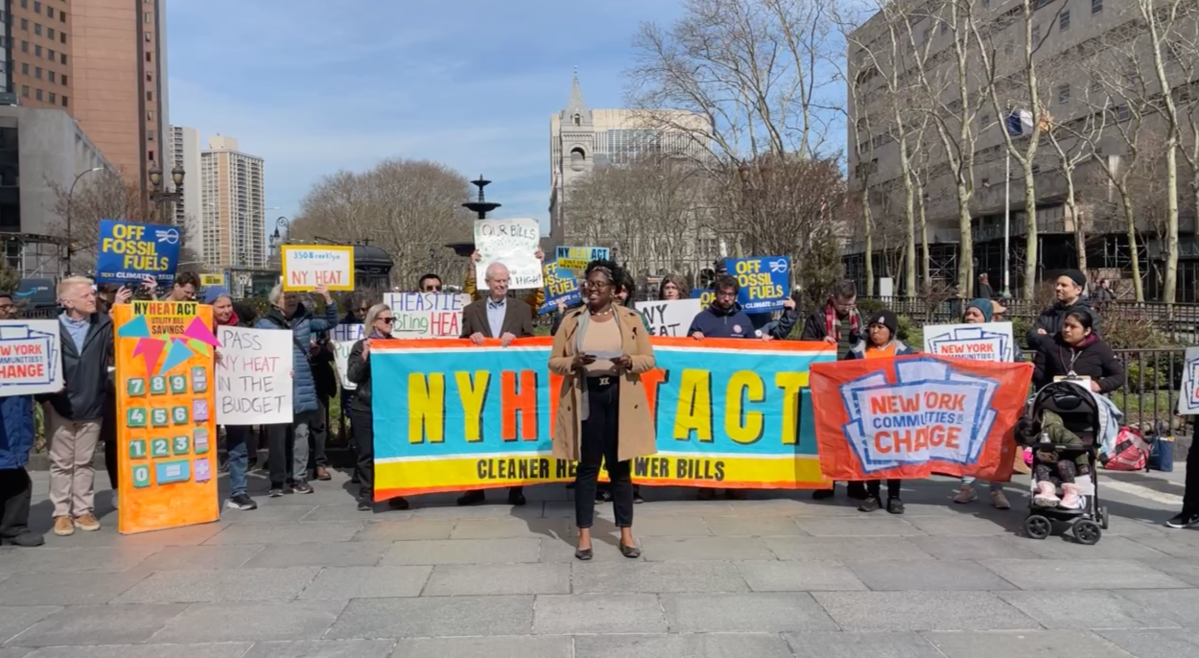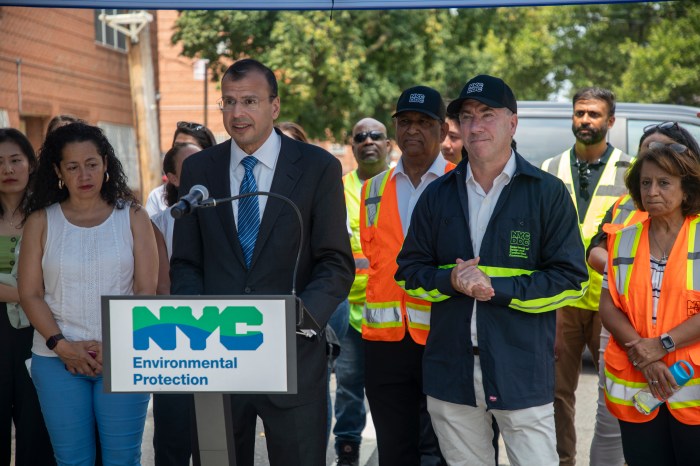A bill idling in the state legislature could save Brooklynites more than $100 on their monthly utility bills, advocates said at a rally outside Brooklyn Borough Hall on Friday.
The HEAT Act, which was first introduced in 2022, would amend laws that effectively subsidize the installation of new gas lines across the state and cap monthly utility bills in an effort to meet carbon emission reduction goals laid out by the Climate Leadership and Protection Act.
Under current regulations, advocates say, utility companies can continue to increase their prices as they build new fossil fuel infrastructure.
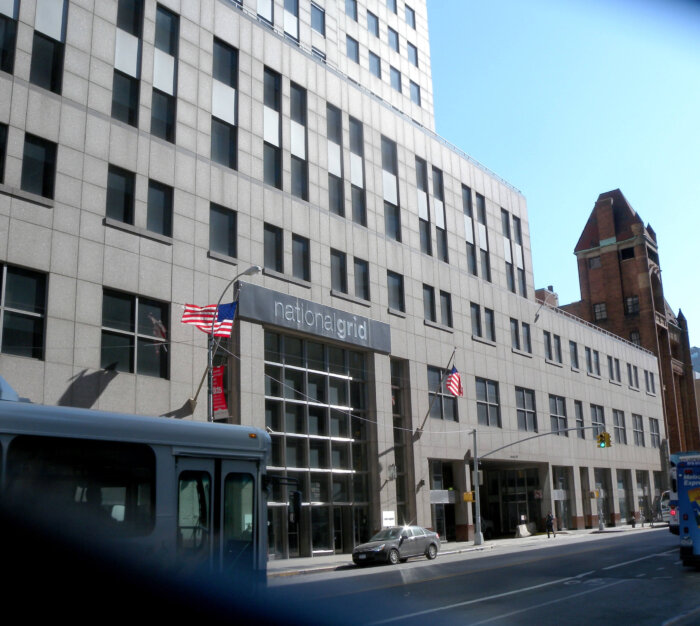
“I’m here to tell you that I received more emails from constituents about the HEAT ACT than any other bill,” said Assembly Member Phara Souffrant-Forrest, who represents parts of Fort Greene, Clinton Hill, Bed-Stuy and Crown Heights.
National Grid has proposed a plan that would raise customer bills by an average of $30 per month, and ConEdison’s prices are slowly increasing under an approved rate hike.
“That’s completely unaffordable for my constituents who are already struggling for food, housing, and childcare,” Souffrant-Forrest said. “We simply can’t keep asking people to pay more, and more, and more for a dirty gas system that’s killing them.”
Laura Shindell, an organizer with Food and Water Watch, said Brooklynites have seen the effects of climate change in the form of extreme weather play out in their own borough in the form of smoke from last summer’s wildfires in Canada and extreme heat and flooding.
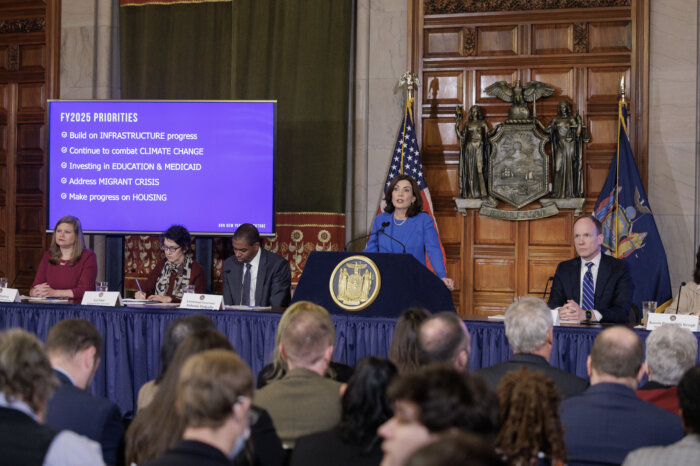
“All of that is no problem for greedy utility companies who are raising rates and using the profits to expand the same gas system that causes climate change,” she said. “ConEd and National Grid are phasing in rate hikes that could cost some families up to $50 or more a month.”
The HEAT Act would limit utility bills to 6% of household income, Shindell said — a goal the state’s Public Service Commission first set in 2016. Combined with reducing subsidies for expanding existing gas systems, Shindell said, the bill would push utility companies to invest in clean energy infrastructure.
Earlier this year, Gov. Kathy Hochul included parts of the HEAT Act in her budget proposal – but not all of it. However, advocates say Hochul’s support shows full passage of the HEAT Act is within reach — especially since the state Senate passed the HEAT Act last year.
Now, they are urging Assembly Speaker Carl Heastie to include the act in the body’s one-house budget, set to be released this week.
Heastie did not immediately reply to a request for comment.
Amid chants of “Hurry, Heastie,” Souffrant-Forrest said the HEAT Act would allow the Public Service Commission — which oversees rate hikes, which utility companies often file to help pay for new projects — to “align utility systems with CLCPA goals.”
“When it comes down to climate policy, there’s an elephant in the room, and we’re not talking about it in Albany,” she said. “That is because we’re not on track to meet our CLCPA goals.”
The CLCPA, which was passed in 2019, aims to reduce the state’s carbon emissions to 40% below 1990 levels by 2030 and 85% below 1990 levels by 2050.
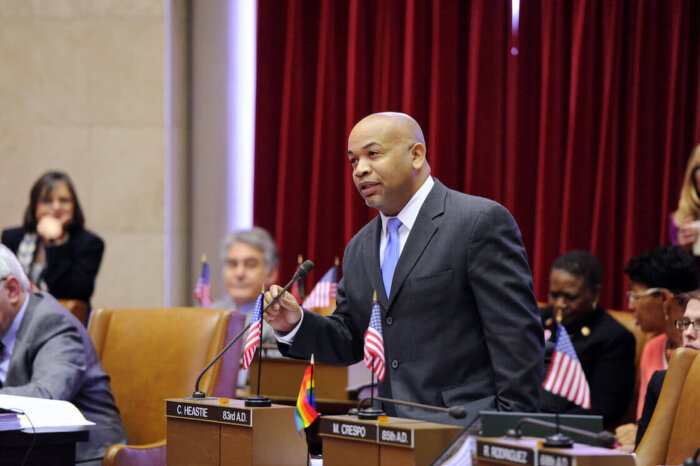
Under the law, the state should be getting 70% of its electricity from renewables by 2030, and 1 million homes should be fully-electric and not reliant on gas at all. Last year, the state passed the All-Electric Buildings Act, which bans gas hookups in new construction starting in 2026.
To meet emissions goals, Souffrant-Forrest said, the state must act.
“It’s not enough to create a roadmap, you actually have to drive the car,” she said.


